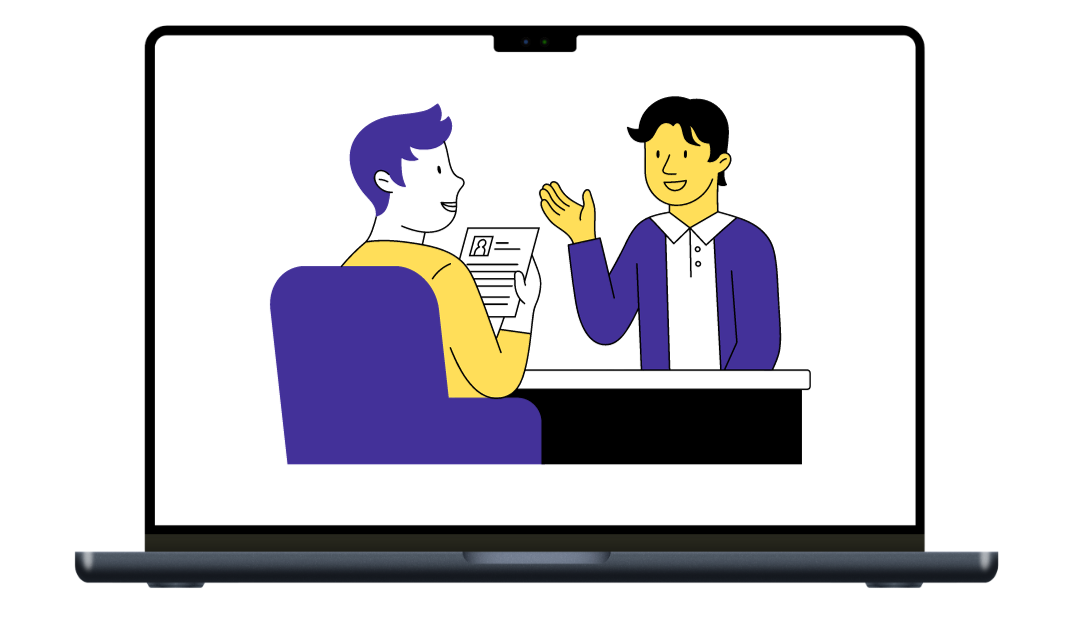
Interview Preparation
Interview preparation is a crucial process that involves getting ready for a job interview to present yourself in the best possible way to potential employers. It encompasses researching the company, understanding the role you’re applying for, practicing interview questions, and improving your communication and presentation skills. Here’s a comprehensive guide to help you prepare effectively for a job interview:
-
Research the Company:
- Gather information about the company’s mission, values, products, services, culture, recent developments, and industry position.
- Understand the company’s target audience, competitors, and any current events or trends relevant to the industry.
-
Study the Job Description:
- Analyze the job description thoroughly to understand the role, responsibilities, qualifications, and skills required.
- Identify specific keywords or phrases used in the job description that align with your qualifications.
-
Prepare Common Interview Questions:
- Anticipate and practice answering common interview questions such as “Tell me about yourself,” “Why do you want to work here,” “What are your strengths and weaknesses,” and “Describe a challenging situation at work and how you handled it.”
-
Formulate Behavioral Interview Responses:
- Use the STAR (Situation, Task, Action, Result) method to structure your responses for behavioral interview questions that inquire about past experiences and actions.
- Be prepared to provide specific examples of your accomplishments, problem-solving abilities, teamwork, and adaptability.
-
Create Your Elevator Pitch:
- Develop a concise and engaging introduction about yourself, summarizing your skills, experiences, and career goals within a minute or two.
- Customize your elevator pitch based on the job you’re applying for and the organization you’re interviewing with.
-
Prepare Questions for the Interviewer:
- Develop insightful questions to ask the interviewer about the role, team dynamics, company culture, opportunities for growth, and any recent company initiatives.
- Asking thoughtful questions demonstrates your interest and engagement in the position.
-
Practice Mock Interviews:
- Conduct mock interviews with a friend, family member, or career counselor to simulate a real interview scenario.
- Use this practice to refine your responses, improve your body language, and work on maintaining a confident and professional demeanor.
-
Dress and Groom Professionally:
- Select appropriate attire that aligns with the company’s culture and the position you’re applying for. Make sure your clothing is clean, ironed, and in good condition.
- Maintain good personal grooming and hygiene.
-
Familiarize Yourself with the Interview Location:
- If possible, visit the interview location in advance to understand the commute, parking options, and the office environment.
- Arrive early on the interview day to allow for any unexpected delays.
-
Boost Your Confidence:
- Reflect on your achievements, experiences, and skills that make you a strong candidate for the job.
- Practice relaxation techniques such as deep breathing or positive affirmations to manage nervousness and boost your confidence.
-
Review Your Resume:
- Be ready to discuss any experiences, skills, or accomplishments listed on your resume in detail.
- Familiarize yourself with the key points in your resume to effectively articulate your qualifications during the interview.
-
Stay Informed About Current Events:
- Stay updated on relevant news and industry trends that may come up during the interview as discussion points.
- Being well-informed demonstrates your interest and awareness of the broader professional landscape.
-
Follow-Up After the Interview:
- Send a thank-you email to the interviewers within 24-48 hours expressing your gratitude for the opportunity to interview and reiterating your interest in the position.
- Use this email to briefly emphasize your qualifications and why you believe you’re a great fit for the role.
